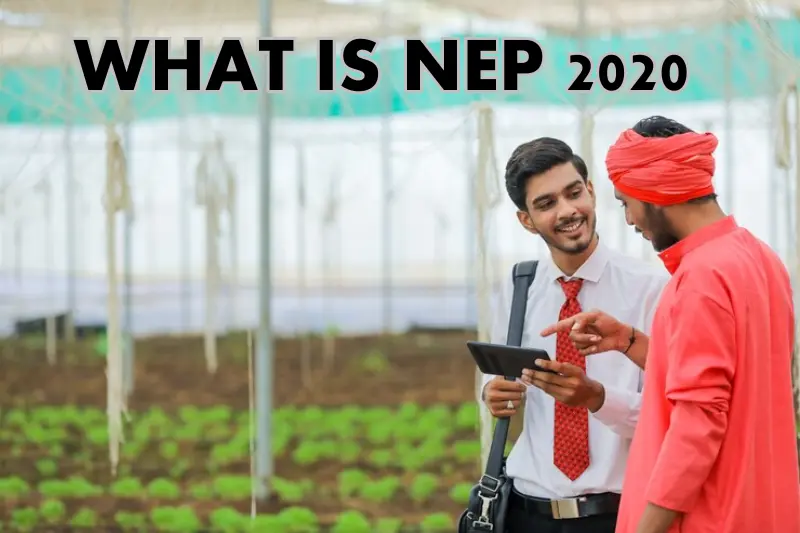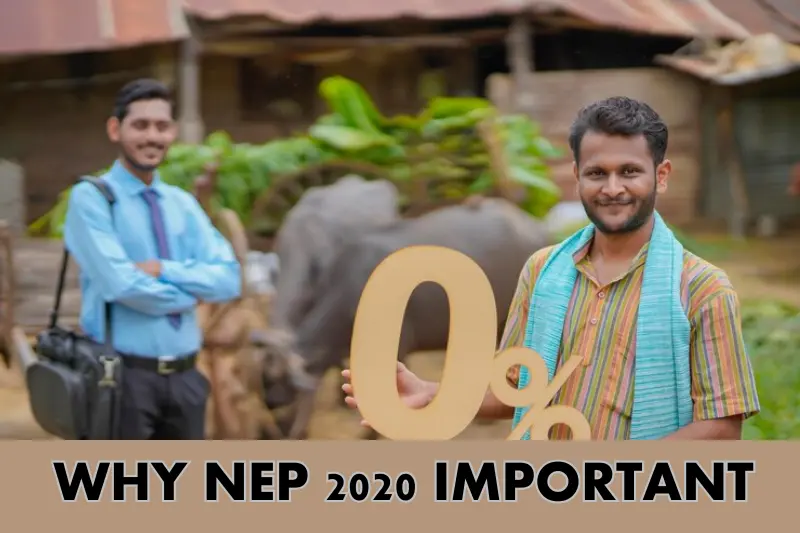Introduction:
The NEP 2020 (National Education Policy 2020) is a major reform introduced by the Government of India to improve the education system. This policy aims to make learning more flexible, practical, and student-friendly. It was approved on July 29, 2020, and replaces the old education policy that was in place for over 30 years. NEP 2020 focuses on holistic development, creativity, critical thinking, and skill-based learning from school to college level. Its main goal is to prepare students for real-world challenges and make India a global leader in education.
What is NEP 2020?

NEP 2020 stands for National Education Policy 2020. It is a new education policy introduced by the Indian government to transform the entire education system—from schools to colleges. The main purpose of NEP 2020 is to make education more modern, skill-based, and student-centered.
It brings major changes in the way students learn, teachers teach, and schools and colleges function. For example, it replaces the old 10+2 structure with a new 5+3+3+4 system. It also encourages teaching in the mother tongue in early classes, promotes vocational training, and gives more flexibility in choosing subjects.
In short, NEP 2020 is a complete roadmap to build a strong, inclusive, and future-ready education system in India.
Why is NEP 2020 Important?

NEP 2020 is important because it brings a fresh and much-needed change to India’s traditional education system. Here are some key reasons why NEP 2020 matters:
- Modernizes Education
NEP 2020 introduces updated teaching methods, technology integration, and focuses on 21st-century skills. - Student-Centered Learning
It moves away from rote learning and promotes creativity, problem-solving, and critical thinking. - Flexible Curriculum
Students can choose subjects they are interested in, breaking the boundaries between arts, science, and commerce. - Focus on Early Childhood Education
For the first time, foundational learning (ages 3–8) is given high priority with a structured approach. - Mother Tongue as Medium of Instruction
In early grades, learning in the local language helps children understand better and learn faster. - Vocational Training from Early Stage
NEP 2020 encourages hands-on skills and vocational education from Grade 6, making students job-ready. - Higher Education Reforms
It introduces a 4-year undergraduate program with multiple exit options and a strong focus on research. - Equity and Inclusion
NEP 2020 aims to reduce the education gap by supporting underprivileged and rural students. - Teacher Training and Support
Better training, assessment, and support systems are introduced to improve teaching quality.
Step-by-Step Guide on NEP 2020
This guide breaks down the major steps and changes introduced by NEP 2020, helping you understand how it works across different levels of education:
Step 1: New Education Structure (5+3+3+4)
NEP 2020 replaces the old 10+2 system with a new 5+3+3+4 structure.
It covers:
- 5 years: Foundational Stage (Pre-school to Grade 2)
- 3 years: Preparatory Stage (Grades 3 to 5)
- 3 years: Middle Stage (Grades 6 to 8)
- 4 years: Secondary Stage (Grades 9 to 12)
Step 2: Early Childhood Care and Education (ECCE)
- Focus on play-based, activity-based learning in the foundational years (ages 3 to 8).
- Anganwadi centers and pre-schools will follow a structured curriculum.
Step 3: Mother Tongue as Medium of Instruction
- Teaching in home language or mother tongue up to Grade 5 (and preferably till Grade 8).
- Helps improve understanding and learning outcomes.
Step 4: Holistic and Skill-Based Learning
- Emphasis on critical thinking, creativity, and problem-solving.
- Integration of co-curricular and vocational subjects into the regular curriculum.
Step 5: Vocational Education from Grade 6
- Students will learn practical skills (like coding, carpentry, gardening, etc.) from Grade 6 onwards.
- Includes internships and hands-on learning experiences.
Step 6: Flexible Subject Choices
- Students can now choose subjects across streams (Science, Arts, Commerce).
- No rigid divisions – a student can take Physics with Music or Economics with Painting.
Step 7: Changes in Higher Education
Introduction of a 4-year undergraduate degree with multiple exit options:
- Exit after 1 year: Certificate
- Exit after 2 years: Diploma
- Exit after 3 years: Bachelor’s degree
- Completion of 4 years: Research degree (optional)
Step 8: Formation of Multidisciplinary Institutions
- All higher education institutions will become multidisciplinary by 2040.
- Promotes a broader and more flexible education experience.
Step 9: National Testing Agency (NTA)
- Common entrance exams for college admissions will be conducted by NTA to ensure fairness and transparency.
Step 10: Teacher Training and Development
- Teachers will receive continuous training and updated certification.
- Focus on improving teaching quality through better resources and support.
Advantages and Disadvantages of NEP 2020
| ADVANTAGES | DISADVANTAGES |
| Modern and flexible education system | Implementation may take a long time across all states |
| Focus on skill-based and practical learning | Shortage of trained teachers for new teaching methods |
| Promotes creativity and critical thinking | Language policy may create challenges in diverse regions |
| Early childhood education is now part of the formal structure | Infrastructure gaps in rural and government schools |
| Multiple exit options in higher education | Not all colleges are ready for multidisciplinary courses |
| Use of mother tongue enhances early understanding | Parents may prefer English medium for career opportunities |
| Vocational training from Grade 6 prepares students for jobs | Need for strong monitoring and quality control |
| Vocational training from Grade 6 prepares students for jobs | Requires massive curriculum redesign and teacher training |
| Promotes equality and inclusion in education | Resistance to change in some traditional institutions |
Common FAQs on NEP 2020
What is NEP 2020?
NEP 2020 stands for National Education Policy 2020, a new education policy launched by the Indian government to improve the quality of learning from school to college.
Why was NEP 2020 introduced?
It was introduced to make education more modern, skill-based, flexible, and student-friendly. The old system was outdated and needed major changes.
What is the new 5+3+3+4 structure in NEP 2020?
This is a new way of dividing the school years:
5 years: Foundational (Nursery to Class 2)
3 years: Preparatory (Classes 3 to 5)
3 years: Middle (Classes 6 to 8)
4 years: Secondary (Classes 9 to 12)
Will subjects like arts and science still be separate?
No, NEP 2020 allows students to choose any subject they like. For example, a student can take science with music or commerce with art.
Will exams still be the same under NEP 2020?
Exams will focus more on understanding and thinking skills rather than just memorizing. Board exams will be easier and more flexible.
Will college education change under NEP 2020?
Yes, college degrees will now have multiple exit options. You can leave after 1, 2, or 3 years and still get a certificate or diploma.
Will NEP 2020 affect students right now?
Some changes have already started, but full implementation will take a few years. So yes, students today will benefit gradually.
Is NEP 2020 good for rural students?
Yes, NEP 2020 promotes equal opportunities and aims to improve education for rural and underprivileged students too.
Conclusion:
NEP 2020 is a big and bold step towards building a better education system in India. It makes learning more flexible, practical, and student-friendly. With a strong focus on skill development, creativity, and equal access, this policy aims to prepare students for a brighter and more successful future. If implemented well, NEP 2020 has the power to transform how India learns and grows
Bonus Points on NEP 2020
- Digital Learning Boost: NEP 2020 promotes online and digital learning, especially after the rise of e-learning during the COVID-19 pandemic.
- National Educational Technology Forum (NETF): A new platform to share and improve the use of technology in education.
- Focus on Indian Knowledge Systems: NEP 2020 encourages learning about India’s culture, heritage, and traditional knowledge.
- No Hard Separation Between Curricular and Co-Curricular: Sports, art, music, and other co-curricular activities are now part of the main curriculum.
- Common Entrance Test: A single test for college admissions will reduce stress and make the process simpler.
- Adult Education: NEP 2020 also aims to educate adults and improve literacy across all age groups.
- Inclusive Education: Special focus on education for differently-abled children and underrepresented communities.
- Multilingualism: Students are encouraged to learn three languages, helping them grow as global citizens.







